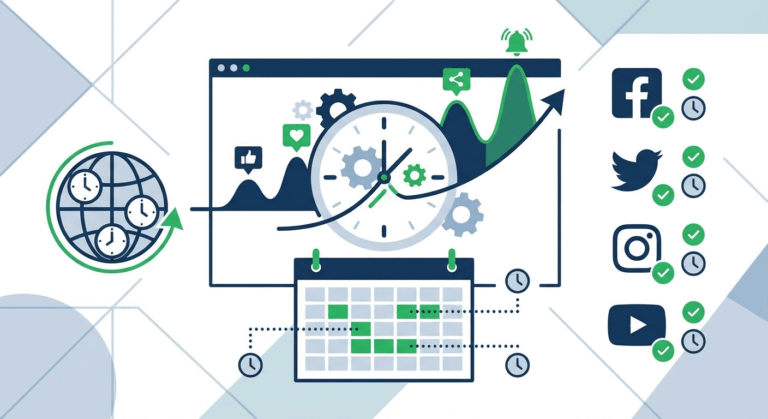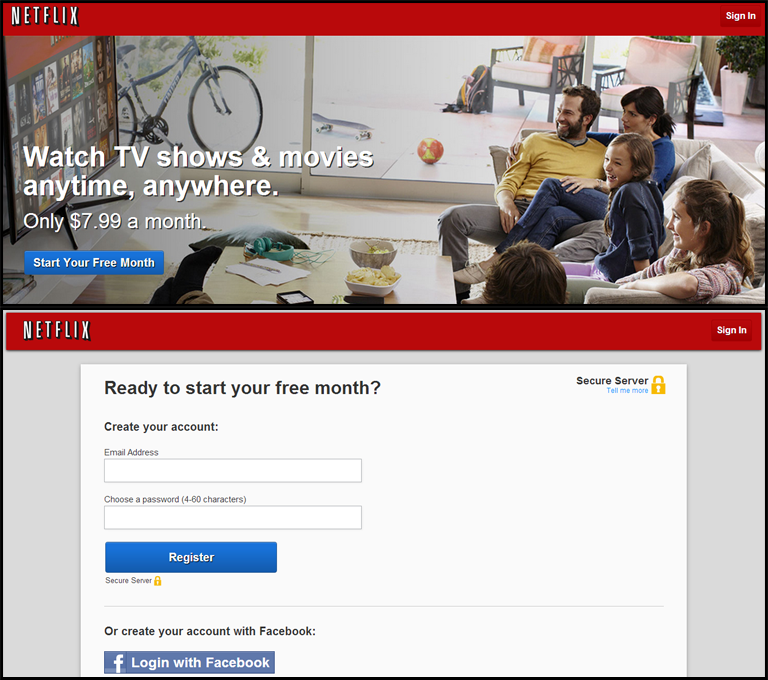What is Local SEO and How to Dominate Local Search in 2025

Running a local business today isn’t just about having great products or loyal customers. It’s about being found first.
Consumers already know what they want. The problem is, they often don’t know where to find it. And in a world where “near me” searches are part of everyday behaviour, visibility on local search is everything.
That’s where local SEO (local search engine optimization) comes in. It’s how your business gets discovered by nearby customers who are ready to buy, not just browsing.
Local SEO isn’t just another digital marketing trend, it’s the cornerstone of how businesses build trust, traffic, and sales in their own communities especially for brick and mortar businesses.
Why Local SEO Matters More Than Ever?
Here’s a simple truth: people don’t search the way they used to.
With smartphones in every pocket, customers now turn Google before they turn to the mall. Searches like “coffee shop near me” or “dentist open now” dominate the result pages. In fact, nearly half of Google searches have local intent, and 78% of those local mobile searches lead to store visits or purchases within 24 hours.
As Truelogic Managing Partner Bernard San Juan says,
Local SEO is for businesses that want to target potential customers in their area. If your audience uses search engines to find products or services, you can’t afford to skip it.”
– Bernard San Juan, truelogic’s managing partner
Local SEO helps you show up where it matters most, in front of people who are ready to act. Whether you’re a small café, a dental clinic, or a real estate firm, local optimization ensures customers find your name before anyone else’s.
And as Google integrates more AI-powered search results and map-based suggestions, ranking well locally isn’t optional anymore. It’s survival.
What is local SEO?
Local SEO is a strategy that helps businesses increase their visibility in location-based search results. In simple terms, it’s how you get your business to appear when someone nearby searches for your product or service.
If you have a physical store, an office, or offer services within a specific area, this is your playbook for digital visibility.
Local SEO works by optimizing your online presence—your website, your Google Business Profile, your listings, and even your reviews—so that search engines recognize your business as a relevant, trusted local result.
This means that when someone in your area searches for “salon near me,” “best law firm in Makati,” or “IT services Quezon City,” your business has a real chance to appear on the map, not buried on page three.
What Does Local Search Mean?
A local search happens when a user looks for a product, service, or business within a specific location. Queries like “near me,” “in [city],” or “open now,” tell Google that the searcher wants something nearby, and not across the country.
Every day, billions of Google searches include local intent. A typical search like “how to bake a cake: becomes “cake shop near me” when there’s buying intent involved.
And here’s where it gets interesting:
Google’s local results, the Map Pack, or “local 3-pack), often appear above organic listings, stealing the top spots (and clicks). That’s why local SEO isn’t just nice to have; it’s where the money is.
If you’re not optimized for local search, you’re practically invisible to the people closest to you.
How is Local SEO Different from Traditional SEO?
Both SEO and Local SEO share the same goal: visibility. But where traditional SEO can be location agnostic (think e-commerce), local SEO zooms in on a specific location.
If SEO is about ranking everywhere, local SEO is about owning your neighborhood.
Traditional SEO gets you seen by anyone, anywhere. Local SEO gets you seen by someone ready to walk into your store, book an appointment, or call your business right now.
Local SEO also factors in proximity, relevance, and prominence, meaning Google looks at how close your business is to the searcher, how relevant it is to their query, and how trustworthy your online reputation appears.
In short: SEO builds reach. Local SEO builds relationships.
What are the Key Benefits of Local SEO for Businesses?
Local SEO isn’t just another checkbox in your digital marketing plan, it’s the bridge between being online and being found.
Here’s what it actually does for your business:
1. It Puts You in Front of Ready-to-Buy Customers
When people search locally, they’re not browsing—they’re deciding.
Think about it: someone typing “car repair near me” or “car battery delivery” isn’t planning for next month. They’re probably stuck in traffic right now. Local search captures that high intent, right-time audience. It’s the difference between “research mode” and “purchase mode.”
When your business appears in the right place at the right time, especially in Google’s Local Pack or Map results, you’re catching customers at the exact moment they’re ready to act.
2. It’s Cost-Effective, Long-Term Visibility
Unlike paid ads, which vanish when your budget runs dry, local SEO keeps your visibility compounding over time.
Once your business is properly optimized, verified listing, good reviews, consistent NAP (name, address, phone), and high-quality local content, your organic reach becomes sustainable.
Local SEO helps you own your search territory without paying rent every month. And while it takes time to build, it’s one of the few digital marketing strategies that keeps paying you back long after the campaign starts.
Local SEO can give you loyal customers who’ll follow you and give you a competitive edge against others in your niche.”
— Bernard San Juan, Truelogic‘s managing partner
3. It Builds Trust and Credibility in Your Community
Appearing in local search results is more than visibility—it’s validation.
When your business shows up alongside accurate listings, quality reviews, and updated details, it signals reliability. Customers trust Google’s top results because they represent relevance and reputation.
And those customer reviews? They’re modern-day word-of-mouth. Google data revealed that nearly 90% of users read online reviews before visiting a business, and positive feedback directly influences buying decisions.
The more visible and well-reviewed you are, the more customers see your brand as the local authority in your space.
4. It Gives You a Competitive Edge
With billions of searches every day, being on page one isn’t about luck, it’s about local optimization.
When you invest in local SEO, you’re competing against fewer players, only those within your area. That makes it easier to stand out, especially for small and medium businesses going against national brands.
Local SEO allows you to own your niche before someone else does. Whether you’re a small café, a clinic, or a home services provider, ranking high locally turns your business into the go-to option for nearby customers.
5. It Connects Online Visibility with Real-World Traffic
Local SEO isn’t just about clicks, it’s about customers walking through your door.
The “Buy Online, Pick-Up In Store” trend shows how digital and physical presence now work hand in hand. Customers discover you online, read reviews, check your hours, and then visit in person.
That seamless journey from screen to storefront is where Local SEO shines.
Key Insight: Local SEO helps your business grow where it counts, in your neighborhood, your city, and your community. If your marketing goal is to bring in more local leads, build trust, and outshine competitors, local search engine optimization is your best bet.
How Local SEO Works (and What You Need to Rank)
So, how does local search engine optimization actually work?
In short: Google wants to give users the most relevant, nearby, and credible results, fast. Local SEO helps you prove that your business is all three.
When someone searches for “best dentist near me” or “IT services in Makati,” Google decides what to show based on three main factors:
Let’s unpack that into actionable steps you can take.
What Are Google’s Key Ranking Factors for Local SEO?
1. Your Google Business Profile (GBP)
Formerly known as Google My Business, your GBP listing is the foundation of local SEO. When you optimize and verify your profile, you improve your chances of appearing in local map packs and “near me” searches.
Make sure your profile includes:
Optimizing and verifying your Google Business Profile is the most important step to improve the local search visibility of your business.”
— Bernard San Juan, Truelogic’s managing partner
If you haven’t claimed yours yet, do it today, it’s free, and it’s one of the fastest ways to boost your presence.
2. Local Citations and Business Listings
Once you’ve optimized your GBP, make sure your business is listed consistently across other online directories like Yelp, Yellow Pages, Facebook, and industry-specific listings.
Your business details (name, address, phone number) must match exactly across all platforms, even small typos or inconsistencies can confuse Google’s crawlers.
Consistency means credibility in Google’s eyes.
3. Reviews and Reputation Signals
Customer feedback plays a huge role in local SEO rankings.
Search engines use reviews as proof of trustworthiness and relevance. A steady flow of authentic, positive reviews shows that your business is active, reliable, and valued by real customers.
Encourage happy clients to leave reviews directly on your Google Business Profile. Respond to them—yes, even the not-so-glowing ones—because engagement signals that you care about your customers’ experience.
Tip: Make reviews easy to give. Add QR codes at your store or a direct review link in post-service emails.
4. On-Page Optimization
Your website still matters—a lot.
Optimize for geo-targeted keywords (e.g., “home renovation in Quezon City” or “wedding cakes in BGC”), include your location in meta titles, headers, and URLs, and make sure your site content answers real local search intent.
Your on-page SEO should include:
And yes, mobile optimization is non-negotiable. With most local searches happening on smartphones, your site has to load fast, look clean, and offer quick ways to call or visit.
5. Backlinks and Local Authority
Backlinks remain one of Google’s top ranking signals, and local backlinks (from nearby or industry-relevant sites) are pure gold.
You can build local authority by:
Each local mention acts like a vote of confidence that strengthens your visibility.
6. Structured Data and Schema Markup
Schema markup helps search engines understand your business information better.
Adding schema (like business hours, reviews, and contact details) to your website boosts your chances of appearing with rich snippets in Google results, those listings with ratings, images, and quick facts.
It’s a subtle enhancement that makes your listing stand out and builds user trust before they even click.
How to Improve Your Local Search Visibility
Let’s put it all together.
If you want your business to rank higher in local searches, focus on these five essentials:
- Claim and optimize your Google Business Profile.
- Maintain consistency in all your listings and citations.
- Collect and manage reviews regularly.
- Optimize your website for mobile and local keywords.
- Earn local backlinks and use schema to stand out.
Local SEO works best when you treat it as an ongoing process, not a one-time setup. Algorithms evolve, competitors update, and trends shift. Staying visible means staying active.
The Ultimate Local SEO Checklist
Whether you’re doing local SEO yourself or working with an agency, having a checklist keeps your strategy grounded and measurable.
Here’s a curated list of what every business should cover to dominate local search.
1. Claim and Optimize Your Google Business Profile
This is your storefront on Google. Make it shine.
Your GBP is the most powerful free tool you’ll ever have in local SEO. Keep it active — Google loves businesses that look alive.
2. Create High-Quality, Geo-Targeted Content
Your website should speak the language of your local audience. That means blending content quality with geo-targeted keywords that help you appear in location-based searches.
Great local content doesn’t just rank, it connects.
3. Optimize On-Page Elements for Local Search
Think of your website as your digital map. Every part should guide both users and Google to your location.
- Include your location in title tags, meta descriptions, and URLs
- Add schema markup for business hours, reviews, and addresses
- Use internal links to connect related pages (especially service or location pages)
- Make sure your site is fast, mobile-friendly, and easy to navigate
Tip: A responsive website isn’t just good design, it’s a ranking factor.
4. Build Local Citations and Directory Listings
Directories are like digital phone books, and Google checks them to verify that you’re a real, established business.
Consistency signals reliability. Even small mismatches can confuse search engines and weaken your authority.
5. Manage Customer Reviews and Feedback
Reviews are the backbone of local search engine optimization. They influence both visibility and reputation.
Reviews are more than ratings, they’re public proof of trust.
6. Strengthen Your Social Presence
Social media might not directly impact rankings, but it boosts visibility, credibility, and engagement, three key factors in local success.
Your social profiles are part of your local ecosystem. Keep them consistent with your brand voice and information.
7. Build Local Backlinks and Mentions
Backlinks remain one of Google’s strongest ranking signals. Local backlinks, in particular, carry significant weight.
When reputable local sources mention your business, it strengthens your credibility and search authority.
8. Track, Analyze, and Adjust
Local SEO isn’t a one-time project. It’s a continuous process of measuring, improving, and adapting.
9. Keep an Eye on Local SEO Trends
The local search landscape moves quickly and it won’t change.
Stay informed on digital marketing trends in local SEO and be ready to adapt. The faster you evolve, the better your business performs.
Get Found Where It Matters
At the end of the day, local SEO in digital marketing isn’t about chasing algorithms, it’s about connecting with people right where they are.
Every search, every click, every “near me” moment is an opportunity for someone to discover your business. The question is: will it be yours they find first?
A strong local SEO strategy doesn’t just help you rank higher; it helps you become the go-to brand in your community.
It bridges your digital presence with real-world results, clicks to calls, calls to visits, and visits to loyal customers.
Keep optimizing, keep showing up, and keep building trust, one search at a time.
Because in the world of local search, visibility isn’t just power. It’s proof that you matter where it counts most.









